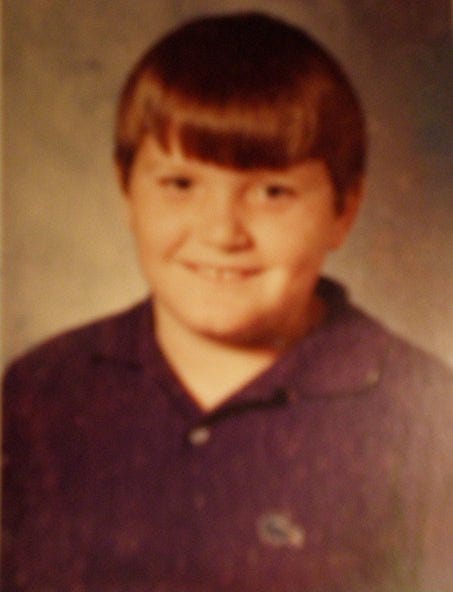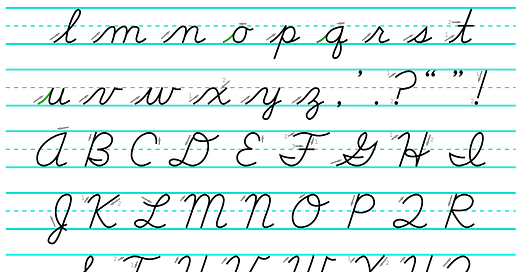Have you ever had the sensation of needing to urinate but being unable to? Have you begun to panic as the pain and pressure builds? Wondering what is possibly wrong with you? And then suddenly you can? Whatever was preventing you has passed and you are able to finish. Was it all in your head? Was it something (hopefully) mundane and transitory? Or is is something serious? The next time you go there’s no problem nor is there the next several times and the incident begins to fade from your memory. And when you do recall it, you say a silent prayer (or the secular equivalent) that this urinary retention was just a one-time thing and that you don’t have kidney stones or bladder stones. That you don’t have urethral cancer or any of a dozen serious health problems that could have caused this problem. And then you mostly forget about the strange way your body was acting that day. That feeling of building pressure, pain, and panic with no release is how writer’s block feels to me.
To be unable to express thoughts and feelings that you desperately want to communicate is painful and anxiety-producing. Which is rich because it was anxiety (or a close counterpart) that drove you to the writer’s block to begin with. I would forgive anyone who thinks, “Maybe he should change the name of this newsletter to ‘Why I Can’t Do Anything.’” It might make a better blog. But seriously, I suspect that I have writer’s block from the intense anxiety brought on by my old enemy, Rejection Sensitive Dysphoria aka RSD. I know I’ve talked about RSD before so I won’t belabor it now. The infographic explains how it works in the brain and leads to cycles of feeling helpless, hopeless, and highly distressed.
I did not have writer’s block in elementary school. I wrote early, prolifically and constantly. Keep in mind that I was writing with a yet-to-be diagnosed learning disability that made handwriting incredibly difficult. It did not faze me. Sure, I wrote sluggishly, but I also wrote very precisely since my first grade teacher made my life a living hell because of my sloppy handwriting and general messiness. She was the first of many teachers to dump my desk in exasperation. I wrote slowly, but I wrote well. I won awards for my writing and was praised for my vocabulary and understanding of grammar. I have never been happier in my life than when I would write and give away dozens of handwritten and illustrated “books” made out of manila paper and clear contact paper. They were mostly about dinosaurs and probably firemen—I didn’t like police back then either. I made books while on recess, at lunchtime, and at home but I really loved to make books while in class during reading time or during the actual lessons. I did not know that I had ADD-inattentive back then, but looking at how I learned and behaved as a kid it’s so obvious. I loved making those books. They were short little books—maybe ten or twelve pages long. I used to say that I was an author of over fifty original books. Well, I was. I don’t have any of these books now, but I remember that I prided myself on all of them being unique though the subject matter of dinosaur and fireman adventures with the occasionally story about Trans Ams and Corvettes was relatively narrow in focus. So, what happened?
Something happened in fourth grade. That something was cursive writing. The D'Nealian Method of cursive writing specifically.
It was theoretically simpler for children to learn than the Palmer and Zaner-Bloser methods that proceeded it, but I would have found writing cuneiform or Egyptian hieroglyphics no more challenging.
My parents knew that I would have a hard time writing cursive, so they enlisted my Aunt Nicki, an elementary classroom teacher to teach me cursive in the summer before fourth grade. Y’all may remember Aunt Nicki from the plaque that she made to enshrine the family’s Green Enchilada Casserole recipe. Aunt Nicki was and remains an excellent educator. She was clear in her teaching, patient with me, and thorough. And I thrived under her instruction. When I went home, I could form all of the cursive alphabet—even that janky lookin “Q” that looks like a “2” got dressed up for the club. I went back to school feeling like I had a leg up on my fellow students. Yet even with this head start I immediately fell to the bottom of my class in penmanship. Let us all remember that I had an undiagnosed learning problem, dysgraphia, that makes written language difficult. And I am emphatically not someone who learns well under a time pressure. Correction: I do nothing well under time pressure. I won’t even play video games that have a timed portion. So having to copy endless sentences in a timely manner was my absolute nightmare. Many days I missed recess because I wasn’t finished with my twenty sentences or the essay that everyone else in the class had long ago finished. I had been able to hack it to just keep up with printing, but cursive knocked me for a loop (pun unintentional) educationally that put me behind for the rest of my academic career. Let me stress that every academic subject began to suffer. Any class that required writing of any sort demanded that it be written in cursive—even the word problems for math class. This was around the time that I was taken out of class to be tested for PEAK, our school district’s gifted and talented program. I sincerely thought that I was being tested for our school’s resource program, the program for the kids with special needs that could still take some general ed classes. PEAK was the only place where I could write however I wanted to, Ms. Nixon did not care if I printed or not. There were not even grades in that class, and I could write stories on the Apple IIC or if I was really lucky, the Apple IIE that was in the PEAK room. I was introduced to The Whole Earth Catalog, an amazing book which was an inspiration for the World Wide Web. I learned some computer programming in BASIC and had fun with geometry and logic with Logo. I loved PEAK. PEAK, art, school programs where I could act, and music class were the only things that kept me from a full Chernobyl meltdown in elementary school, though I had plenty of Three Mile Island crises.

Around the time that cursive reared its ugly head I began to procrastinate and have writer’s block on all of my written assignments. I would be frozen and unable to write until panic got the best of me and I would slowly scrawl something down—messy and usually incomplete and turn it in. Sometimes not even panic could trigger me to write and I would take the zero. For a “gifted kid” to not turn in work or to partially finish work was anethma to my parents, and it was around this time that I began to be punished for my grades and for not applying myself. I went from a kid who loved school to a kid that despised school. My teachers and my parents could not help me find a solution, but in desperation I found a workaround that saved my skin for the last couple of years of elementary school: Impromptu speaking. When called to read the essay that we were supposed to have written in class or the night before, I would simply hold up a graded homework assignment—or often as not a blank sheet of loose leaf and just talk off of the top of my head for about as long as the other kids did. I was constantly terrified that the teachers would take up the papers and catch my ruse, but it never happened. I would have gladly done this for the rest of school, but this tactic would not work in junior high. Believe me, I tried.
Thank you, as always, for reading.
Drop me a line: jeremydnichols@tooearlyoldtoolatesmart.com
Follow me on Twitter: @jeremydnichols
Follow me on Instagram: @germynickels
Follow me on TikTok: germynickels
My PayPal: PayPal for Jeremy Nichols
Discord server: Too Late Smart Newsletter Server
Jeremy’s Guitar Fiasco: Jeremy's Guitar Fiasco
Email for Jeremy’s Guitar Fiasco: jeremy@jeremysguitarfiasco.com
Twitter for Jeremy’s Guitar Fiasco: @guitarfiasco
Facebook group for Jeremy’s Guitar Fiasco: @jeremysguitarfiasco
YouTube Channel: Jeremy's Guitar Fiasco








